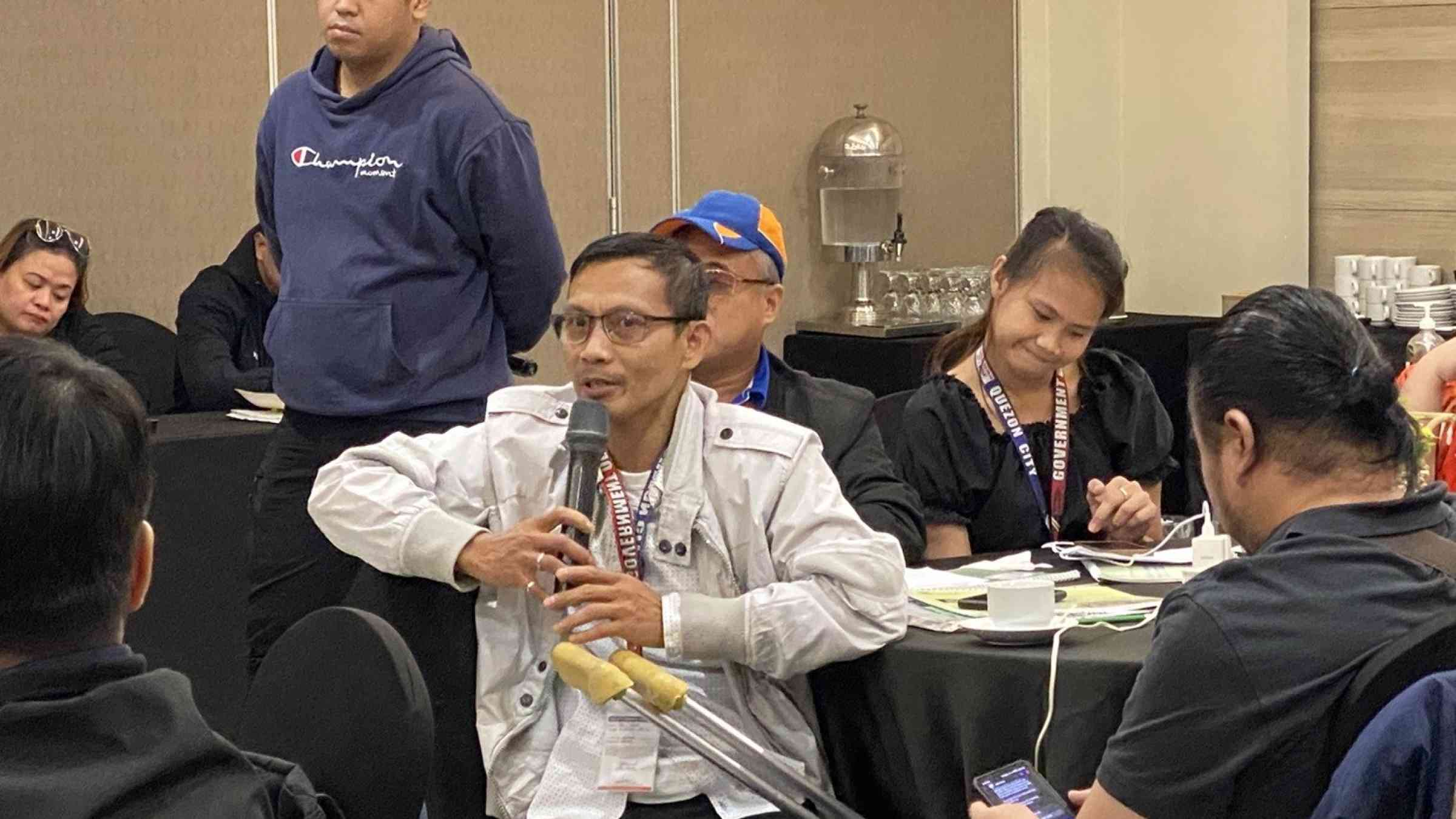The most populous city in the Philippines leads by example in inclusive disaster risk reduction

Reducing disaster risk is seemingly never-ending in a country like the Philippines, which is exposed to a multitude of natural hazards.
Increasing urbanization also increases the risk of disasters in cities. New patterns of hazards, exposure and vulnerability are emerging. In this context, local authorities play a dual role. They are the first responders to disasters but are also instrumental in disaster risk reduction (DRR).
Persons with disabilities are often the most affected by natural hazards. Little progress has been made over the past decade in including them in DRR, according to a survey conducted by the United Nations Office for Disaster Risk Reduction (UNDRR) in 2023. Persons with disabilities often do not have access to information about disaster risk and are not included in decision-making related to DRR in communities, and few DRR plans consider the specific needs of persons with disabilities. This is the case in the Philippines as in most countries around the world.
A push in the right direction
The Midterm Review of the Sendai Framework for Disaster Risk Reduction 2015-2030, which concluded in 2023, emphasized that more needs to be done to engage the whole of society in DRR, especially the people and communities most at-risk, and that DRR at the local level is of great importance if we want to implement the Sendai Framework by 2030.
Despite the ambitious agenda to localize DRR and the progress that the Philippines has made in increasing capacities and resources and developing regulations at the smallest government units (barangay), its voluntary national report for the Sendai Framework Midterm Review highlights the need to further strengthen local DRR as a priority area.
A chain of learning
On 28 and 29 November 2023, UNDRR provided a training on urban resilience and disability inclusion in DRR in Quezon City, which is the most populous city in the Philippines and belongs to the Metro Manila region. Representatives from different city departments attended, alongside organizations of persons with disabilities.
A key element of the UNDRR-led initiative Making Cities Resilient 2030 (MCR2030) is connecting cities and facilitating peer learning on resilience. A representative from Baguio City in the northern Philippines co-facilitated the training in Quezon City and shared experiences from the inclusion of persons with disabilities in DRR in a context that is familiar to Quezon. In 2022, officials from Baguio City were trained by the MCR2030 Resilience Hub Makati City, which is also part of Metro Manila. Quezon City is thus the third city in this learning chain.
An assessment, an action plan, a platform and lots of commitment
During the training in Quezon City, participants learned how to use the Disaster Resilience Scorecard for Cities and its annex for the inclusion of persons with disabilities in DRR to evaluate disaster risk management practices.
Based on this assessment, they developed an initial action plan on the inclusion of persons with disabilities in institutional capacities, infrastructure resilience, and recovery, including “Building Back Better”.
The aim of the training was not only to increase knowledge about inclusive DRR and risk assessment capacities, but also to build a platform where local authorities and persons with disabilities come together to discuss DRR and where persons with disabilities are involved in risk assessments and decision-making on DRR.
For many representatives from organizations of persons with disabilities, this training was the first time they had been included in discussions about DRR. “We appreciate the opportunity to have a seat at the table and contribute to decisions that concern us”, one representative said.
Together, the city officials and the organizations of persons with disabilities committed to making DRR in Quezon City more inclusive and to transfer their knowledge and lessons learnt to other cities.
Support for local DRR from the national authorities
With the Department of the Interior and Local Governments (DILG) and the Office for Civil Defense (OCD), national authorities were also represented at the workshop.
An official from the OCD highlighted that the inclusion of persons with disabilities is an issue that needs to be further considered in policies and frameworks, at the local and national levels. “The training helped to understand that local planning needs to be more inclusive and also take into account the needs and perspectives of persons with disabilities to build resilience”, he said.
The engagement of national authorities in MCR2030 builds capacity for urban resilience also at the national level, helping to ensure that cities are more resilient to future disasters and the most at-risk are protected.
A global effort
UNDRR has been piloting the use of the Disaster Resilience Scorecard annex for the inclusion of persons with disabilities in DRR with national and local government in Bhutan, Colombia, Brazil, Uganda, Kazakhstan and the Philippines in 2023.
The training in Quezon was made possible thanks to the support of the Governments of Finland and the Republic of Korea, as well as the Metropolitan City of Incheon in Korea.
Juha Pyykkö, Ambassador of Finland to the Philippines, who attended the workshop, congratulated Quezon City on its commitment: “Champions like Quezon City are needed to inspire the localization of disaster risk reduction with the inclusion of persons with disabilities all over the Philippines”.

